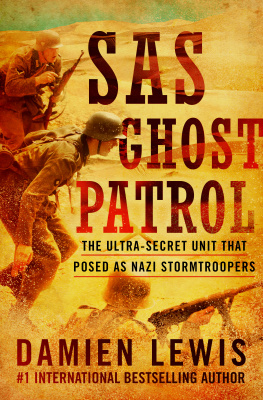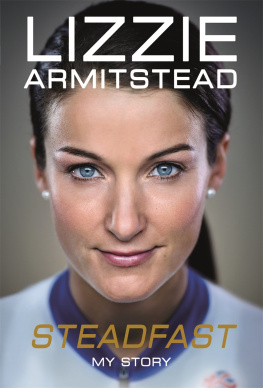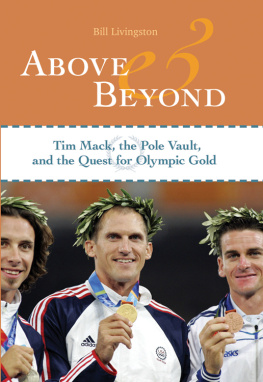Lewis - Assault on Lake Casitas
Here you can read online Lewis - Assault on Lake Casitas full text of the book (entire story) in english for free. Download pdf and epub, get meaning, cover and reviews about this ebook. year: 2011, publisher: Shark Press, genre: Non-fiction. Description of the work, (preface) as well as reviews are available. Best literature library LitArk.com created for fans of good reading and offers a wide selection of genres:
Romance novel
Science fiction
Adventure
Detective
Science
History
Home and family
Prose
Art
Politics
Computer
Non-fiction
Religion
Business
Children
Humor
Choose a favorite category and find really read worthwhile books. Enjoy immersion in the world of imagination, feel the emotions of the characters or learn something new for yourself, make an fascinating discovery.

- Book:Assault on Lake Casitas
- Author:
- Publisher:Shark Press
- Genre:
- Year:2011
- Rating:3 / 5
- Favourites:Add to favourites
- Your mark:
- 60
- 1
- 2
- 3
- 4
- 5
Assault on Lake Casitas: summary, description and annotation
We offer to read an annotation, description, summary or preface (depends on what the author of the book "Assault on Lake Casitas" wrote himself). If you haven't found the necessary information about the book — write in the comments, we will try to find it.
Lewis: author's other books
Who wrote Assault on Lake Casitas? Find out the surname, the name of the author of the book and a list of all author's works by series.
Assault on Lake Casitas — read online for free the complete book (whole text) full work
Below is the text of the book, divided by pages. System saving the place of the last page read, allows you to conveniently read the book "Assault on Lake Casitas" online for free, without having to search again every time where you left off. Put a bookmark, and you can go to the page where you finished reading at any time.
Font size:
Interval:
Bookmark:
Assaulton Lake Casitas
by
Brad Alan Lewis
Table of Contents
The Assault Begins
5:13a.m., Sunday, January 15, 1984
Icecold January morning. Dan struggled over the rattling gate, making the chainand lock bang against the pole, but no one interrupted our illegal assault. Noone passed our way or heard our self-denigrating laughter as we realized welooked more like bums, with our tattered shirts and leggings, than two aspiringOlympians.
Icarefully handed my single scull over the gate to Dan. He took it from me andthen set it on a grassy slope a few yards away. We repeated the maneuver withhis boat, and then I passed him our oars. I took my time as I climbed over,being extra careful not to lose my balance as my groin traversed the sharp wireteeth along the top of the gate.
At5:30 a.m., temperature about 38 degrees, a stiff wind blowing from the south,we gathered our equipment and hurried toward the lake. Our Assault on LakeCasitas, as we had decided to call it, had begun.
Ourpurpose in coming to this distant place at so peculiar an hour was to tap intothe source of all rowing energy for 1984Lake Casitas, the site of the rowingevents for the Los Angeles Olympic Games. We were also in search of a BradLewisstyle adventure, something wild, unprecedented, a break from thepredictable and often boring rigors of training.
Onceinside the forbidden sanctuary, my senses turned on edge, exactly the way Iliked to feel. I glanced frequently at the road, but I knew a quick escapewould be impossible with our delicate boats. We had to move carefully, keep lowto the ground, and, if discovered, be prepared to split up, like they do in myfavorite reruns of Rat Patrol.
Iwondered what would happen if we were caught by the rangers who relentlesslypatrolled the lake in search of trespassers. Lake Casitas served as a drinkingwater reservoir for Ventura County, and therefore, swimming, skiing,jet-skiing, wading, washing, splashing, frolicking, and sculling were illegal.The prospect of our skinny boats tipping over and our unclean bodies pollutingthe sacred waters made the rangers furious. The Lake Casitas guardians haddecreed that only two exceptions would be made to their No Sculling law: thePre-Olympic Regatta and the Olympic Games themselves.
Afew months earlier, in September, I had raced at the Pre-Olympic Regatta. SinceLake Casitas had never hosted a regatta of any size, much less the Olympics, apractice competition was needed to ensure that the buoys would be in place andthat the water would not be too rough for afternoon rowing. For thismock-Olympics, only the single and double scull competed, along with thestraight pair and four-with coxswain.
Amore accurate name for the competition might have been the Pre-Olympic Party,since the regatta took place only two weeks after the 83 World Championships,the premiere event in rowing outside of the Olympics. Many of the competitorswho arrived in California for the Pre-Olympics were tired of training. Theywere more interested in seeing Disneyland and learning to surf.
Itoo was tired, but I had a special reason for eagerly anticipating thisregatta. My partner, Paul Enquist, and I had raced the double scull at the 83World Championshipsand had finished dead last in the finals. Now, at thePre-Olympics, we were presented with that rarest of opportunities in thesporting world, a second chance. Wed use it to prove that we were capable ofracing, stroke for stroke, against the faster double scullers in the world.
Beforethe finals of the Pre-Olympics, Paul and I had decided on a new strategy. Wedrow like maniacs for the first half1000 meters. Then, with a handsome lead andall our opponents wondering what the hell we had eaten for breakfast, we wouldsell our souls to stay ahead until the finish line2000 meters, a mile and aquarter. The distance was not far if you were flying overhead in a jet plane.It was roughly the distance to the moon if you were getting hammered, your asshanded to you, waked down and left behind, severely bruised and beaten.
Thefirst part of our strategy worked to perfection. At the halfway mark, we ledevery top double scull team in the world by a full boat length of open water.Then the bed broke. First the Norwegians passed us, then the East Germans,followed by the Finnish double. Paul and I would have needed an extra set oflungs and legs to stay ahead. By the time we limped across the finish line,every boat except the Italians, two lightweight scullers, had passed us. Aminute or two later, after being ordered by the race officials to vacate thefinish line areaonly medalists need stay aroundwe slowly paddled back to thedock, barely able to hang onto our oars.
AsI listened to the medals being awarded to the Norwegians, I swore that I wouldnever row the double scull againnot with Paul Enquist, not with anyone. Myrowing future would be decided in the single scull, the one-man boat. You makeyour own success in the single scull. You win or lose by your own toughness.You alone are responsible for the outcome of the race. The sheer, unadulteratedpleasure of winning a single sculling race, regardless of the level, fromnovice to elite, is enough to keep you training for another three years.
Onthis Sunday morning, the Pre-Olympic regatta was ancient history. A fresh year,a new year, the Olympic year, had finally arrived. Never before had I welcomedwith such anticipation a specific sequence of numbers: one, nine, eight, four.1984.
Itightened my oarlocks, put my right foot between the tracks, and with my leftfoot, I lightly pushed away from the shore. I have always loved the brief,exquisite moment when I freed myself from the constraints of land. Such asimple thingpush and glideyet so wonderfully liberating.
Ishivered, and my feet burned with a million pinpricks from having stood in theicy water. As I pulled on my socks I looked around me, trying to separate thelimitless night sky from the lake surface. The water was so dark it appeared tohave no depth, no bottom, as though I were sitting on a black cloud. I paddledtoward the middle of the lake, gliding on the forbidden pool, hidden, unseen,in a cocoon. I closed my eyes for a few strokes and let the curtain dropcompletely.
Ihad begun rowing in high school, continued through college, and then anotherseven yearsa grand total of 13 years. Through all those watery miles, and allthose weights lifted, and all those hills run, I had been spiraling toward thistiny pond. Rowing, for me, had become a painful, most persistent itch that hadgradually taken over my life. I would win the gold medal or die trying. Thephrase die trying might sound corny, but when you expend an immeasurableamount of effort over 13 years, all toward a solitary goal, then a commitmentto die trying is a natural evolution. Were it any other way, the time you spentrowing would have been wasted.
Asthe stars began to release their grip on the sky, I turned around and lookedfor Dans dark outline. Our row would be short this morning, roughly the sametime and distance as the Olympic single scull finals, 2000 meters. Beforeleaving the shore, Dan and I had agreed to hold a pretend Olympic final,complete with starting commands in French, the international language of rowing.
Afew minutes later, as we sat poised at the starting line, I gave the commands:East Germany, prt? I couldnt imagine an Olympic final without an EastGerman. They were always fast, and they won an inordinate number of medals.
Finland,prt? The great Finnish sculler, Pertti Karppinen, 76 and 80 Olympicchampion, would certainly be favored to win.
WestGermany, prt? At the 76 Montreal Olympics, from the standing-room-only sideof the racecourse, I had watched the West German sculler, Peter-Michael Kolbe,lead the whole race, only to be passed by Karppinen in the last five strokes.This race made a serious impression on me. I was in awe of these titans, and Iimmediately wanted to join the battle. Within a few days, I had acquired a racingshell of my own, and before a year had passed, this obscure, antiquated sporthad become my passion.
Next pageFont size:
Interval:
Bookmark:
Similar books «Assault on Lake Casitas»
Look at similar books to Assault on Lake Casitas. We have selected literature similar in name and meaning in the hope of providing readers with more options to find new, interesting, not yet read works.
Discussion, reviews of the book Assault on Lake Casitas and just readers' own opinions. Leave your comments, write what you think about the work, its meaning or the main characters. Specify what exactly you liked and what you didn't like, and why you think so.













